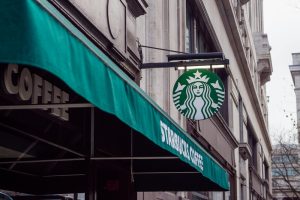A prominent consumer advocacy group has initiated legal proceedings against Starbucks, the global coffee giant, accusing it of deceptive advertising by allegedly sourcing coffee and tea from farms involved in human rights and labor abuses. The National Consumers League, the group leading the charge, filed the case in a Washington, D.C., court, contending that Starbucks is falsely promoting its commitment to "100% ethical" sourcing, despite knowingly engaging with suppliers associated with documented and severe violations.
Sally Greenberg, CEO of the National Consumers League, asserted, "On every bag of coffee and box of K-cups that Starbucks sells, Starbucks is heralding its commitment to 100% ethical sourcing. But it’s pretty clear that there are significant human rights and labor abuses across Starbucks’ supply chain."
The lawsuit cites instances of reported abuses on specific coffee and tea farms in Guatemala, Kenya, and Brazil, accusing Starbucks of persisting in business with these suppliers despite documented violations. A Starbucks spokesperson responded, stating, "We take allegations like these extremely seriously and are actively engaged with farms to ensure they adhere to our standards."
In Brazil, labor officials cracked down on several Starbucks suppliers for reported abusive labor practices, including underage workers and unsafe conditions. Starbucks claimed to have taken corrective action in Guatemala and Kenya in response to reported abuses.
The lawsuit seeks to restrain Starbucks from making claims about ethical sourcing unless tangible improvements are made within its supply chain. Starbucks relies on third-party certification programs, such as C.A.F.E. practices, to monitor its supply chains, administered by SCS Global Services in collaboration with Conservation International.
Despite certification programs, critics argue their effectiveness, citing a 2021 case against Rainforest Alliance, the third-party certifier for Starbucks’ tea and cocoa supply chains. The suit accused Hershey of "false and deceptive marketing," revealing challenges in ensuring ethical practices throughout supply chains.
Genevieve LeBaron, director of the School of Public Policy at Simon Fraser University, emphasized the systemic challenges in achieving truly ethical supply chains. She noted that large players like Starbucks, while making commitments, must ensure those pledges translate into tangible improvements to uphold the integrity of their supply chains.
The issue at hand, LeBaron suggested, extends beyond Starbucks, highlighting the broader challenge of ethical sourcing in industries with a historical trend of procuring goods below their production costs. Ethical commitments from major purchasers, like Starbucks, can wield significant influence if substantiated by concrete actions.
In light of these allegations, Starbucks faces a legal battle that puts its ethical sourcing claims under scrutiny, raising broader questions about the efficacy of certification programs and the challenges companies face in maintaining truly ethical supply chains.






















